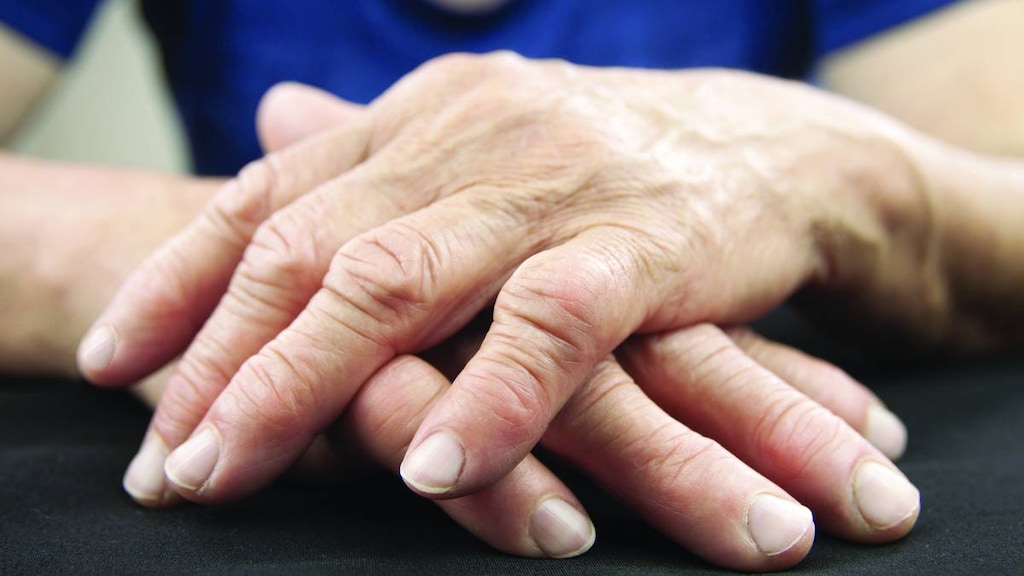What is Orencia?
Orencia is a prescription medicine that reduces signs and symptoms in:
- adults with moderate to severe rheumatoid arthritis (RA), including those who have not been helped enough by other medicines for RA. Orencia may prevent further damage to your bones and joints and may help your ability to perform daily activities. In adults, Orencia may be used alone or with other RA treatments other than tumor necrosis factor (TNF) antagonists.
- patients 2 years of age and older with moderate to severe polyarticular juvenile idiopathic arthritis (JIA). Orencia may be used alone or with methotrexate.
- adults with active psoriatic arthritis (PsA). In adults, Orencia can be used alone or with other PsA treatments.
It is not known if Orencia is safe and effective in children under 2 years of age.
It is not known if Orencia is safe and effective in children for uses other than juvenile idiopathic arthritis.
What should I tell my healthcare provider before taking Orencia?
Before you use Orencia, tell your healthcare provider about all of your medical conditions, including if you:
- have any kind of infection even if it is small (such as an open cut or sore), or an infection that is in your whole body (such as the flu). If you have an infection when taking Orencia, you may have a higher chance for getting serious side effects.
- have an infection that will not go away or an infection that keeps coming back.
- are allergic to abatacept or any of the ingredients in Orencia. See the end of this Patient Information leaflet for a complete list of ingredients in Orencia.
- have or have had inflammation of your liver due to an infection (viral hepatitis). Before you use Orencia, your healthcare provider may examine you for hepatitis.
- have had a lung infection called tuberculosis (TB), a positive skin test for TB, or you recently have been in close contact with someone who has had TB. Before you use Orencia, your healthcare provider may examine you for TB or perform a skin test. Symptoms of TB may include:
- a cough that does not go away
- weight loss
- fever
- night sweats
- are scheduled to have surgery.
- recently received a vaccination or are scheduled for a vaccination. If you are receiving Orencia, and for 3 months after you stop receiving Orencia, you should not receive live vaccines.
- have a history of a breathing problem called chronic obstructive pulmonary disease (COPD).
- have diabetes and use a blood glucose monitor to check your blood sugar (blood glucose) levels. Orencia for intravenous infusion (given through a needle placed in a vein) contains maltose, a type of sugar, that can give false high blood sugar readings with certain types of blood glucose monitors on the day of Orencia infusion. Your healthcare provider may tell you to use a different way to monitor your blood sugar levels.
- Orencia for subcutaneous injection (injected under the skin) does not contain maltose. You do not need to change your blood sugar monitoring if you are taking Orencia subcutaneously.
- are pregnant or plan to become pregnant. It is not known if Orencia can harm your unborn baby. If you took Orencia during pregnancy, talk to your healthcare provider before your baby receives any vaccines.
- Bristol-Myers Squibb Company has a registry for pregnant women exposed to Orencia. The purpose of this registry is to check the health of the pregnant mother and her child. Women are encouraged to call the registry themselves or ask their healthcare provider to contact the registry for them by calling 1-877-311-8972.
- are breastfeeding or plan to breastfeed. It is not known if Orencia passes into your breast milk. Talk to your healthcare provider about the best way to feed your baby if you use Orencia.
Tell your healthcare provider about all the medicines you take, including prescription and over-the-counter medicines, vitamins, and herbal supplements.
Orencia may affect the way other medicines work, and other medicines may affect the way Orencia works causing serious side effects.
Especially tell your healthcare provider if you take other biologic medicines to treat RA, JIA or PsA that may affect your immune system, such as:
- Enbrel (etanercept)
- Humira (adalimumab)
- Remicade (infliximab)
- Kineret (anakinra)
- Rituxan (rituximab)
- Simponi (golimumab)
- Cimzia (certolizumab pegol)
- Actemra (tocilizumab)
You may have a higher chance of getting a serious infection if you take Orencia with other biologic medicines for your RA, JIA, or PsA.
Know the medicines you take. Keep a list of your medicines and show it to your healthcare provider and pharmacist when you get a new prescription.
How should I take Orencia?
- You may receive Orencia given by a healthcare provider through a vein in your arm (IV or intravenous infusion). It takes about 30 minutes to give you the full dose of medicine. You will then receive Orencia 2 weeks and 4 weeks after the first dose and then every 4 weeks.
- You may also receive Orencia as an injection under your skin (subcutaneous). For home use, Orencia comes in a prefilled syringe or prefilled ClickJect autoinjector. Your healthcare provider will prescribe the type that is best for you. If your healthcare provider decides that you or a caregiver can give your injections of Orencia prefilled syringes or Orencia ClickJect autoinjectors at home, you or your caregiver should receive training on the right way to prepare and inject Orencia. Do not try to inject Orencia until you have been shown the right way to give the injections by your healthcare provider.
- Your healthcare provider will tell you how much Orencia to use and when to use it.
- See the instructions for use that comes with Orencia for instructions about the right way to prepare and give your Orencia injections at home.
What are the possible side effects of Orencia?
Orencia can cause serious side effects including:
- infections. Orencia can make you more likely to get infections or make the infection that you have get worse. Some people have died from these infections. Call your healthcare provider right away if you have any symptoms of an infection. Symptoms of an infection may include:
- fever
- feel very tired
- have a cough
- have flu-like symptoms
- warm, red, or painful skin
- allergic reactions. Allergic reactions can happen to people who use Orencia. Call your healthcare provider or go to the emergency room right away if you have any symptoms of an allergic reaction. Symptoms of an allergic reaction may include:
- hives
- swollen face, eyelids, lips, or tongue
- trouble breathing
- hepatitis B infection in people who carry the virus in their blood. If you are a carrier of the hepatitis B virus (a virus that affects the liver), the virus can become active while you use Orencia. Your healthcare provider may do a blood test before you start treatment with Orencia.
- vaccinations. You should not receive Orencia with certain types of vaccines (live vaccines). Orencia may also cause some vaccinations to be less effective. Talk with your healthcare provider about your vaccination plans.
- breathing problems in people with Chronic Obstructive Pulmonary Disease (COPD). Some people may get certain respiratory problems more often if they receive Orencia and have COPD. Symptoms of respiratory problems include:
- COPD that becomes worse
- cough
- trouble breathing
- cancer (malignancies). Certain kinds of cancer have been reported in people using Orencia. It is not known if Orencia increases your chance of getting certain kinds of cancer.
Common side effects of Orencia include:
- headache
- upper respiratory tract infection
- sore throat
- nausea
In children and adolescents, other side effects may include:
- diarrhea
- cough
- fever
- abdominal pain
These are not all the possible side effects of Orencia.
Call your doctor for medical advice about side effects. You may report side effects to FDA at 1-800-FDA-1088.
General information about the safe and effective use of Orencia
Medicines are sometimes prescribed for purposes other than those listed in a Patient Information leaflet. Do not use Orencia for a condition for which it was not prescribed. Do not give Orencia to other people, even if they have the same symptoms that you have. It may harm them.
You can ask your pharmacist or healthcare provider for information about Orencia that is written for health professionals.
How should I store Orencia?
- Store Orencia in the refrigerator at 36°F to 46°F (2°C to 8°C).
- Keep Orencia in the original package and out of the light.
- Do not freeze Orencia.
- Safely throw away medicine that is out of date or no longer needed.
Keep Orencia and all medicines out of the reach of children.
What are the ingredients in Orencia?
Active ingredient: abatacept
Inactive ingredients:
IV infusion: maltose, monobasic sodium phosphate, sodium chloride for administration
Subcutaneous injection: sucrose, poloxamer 188, monobasic sodium phosphate monohydrate, dibasic sodium phosphate anhydrous, water for injection.
For more information, go to www.ORENCIA.com or call 1-800-ORENCIA.




